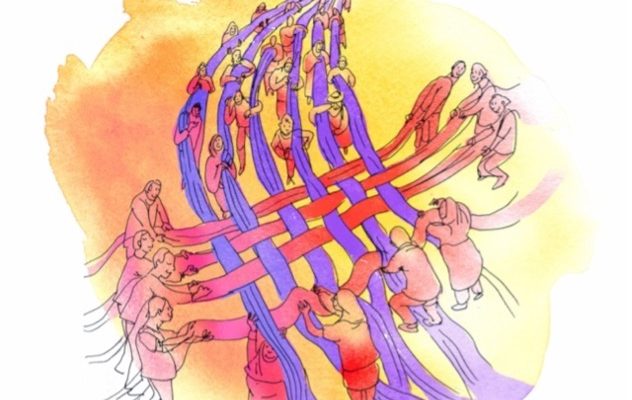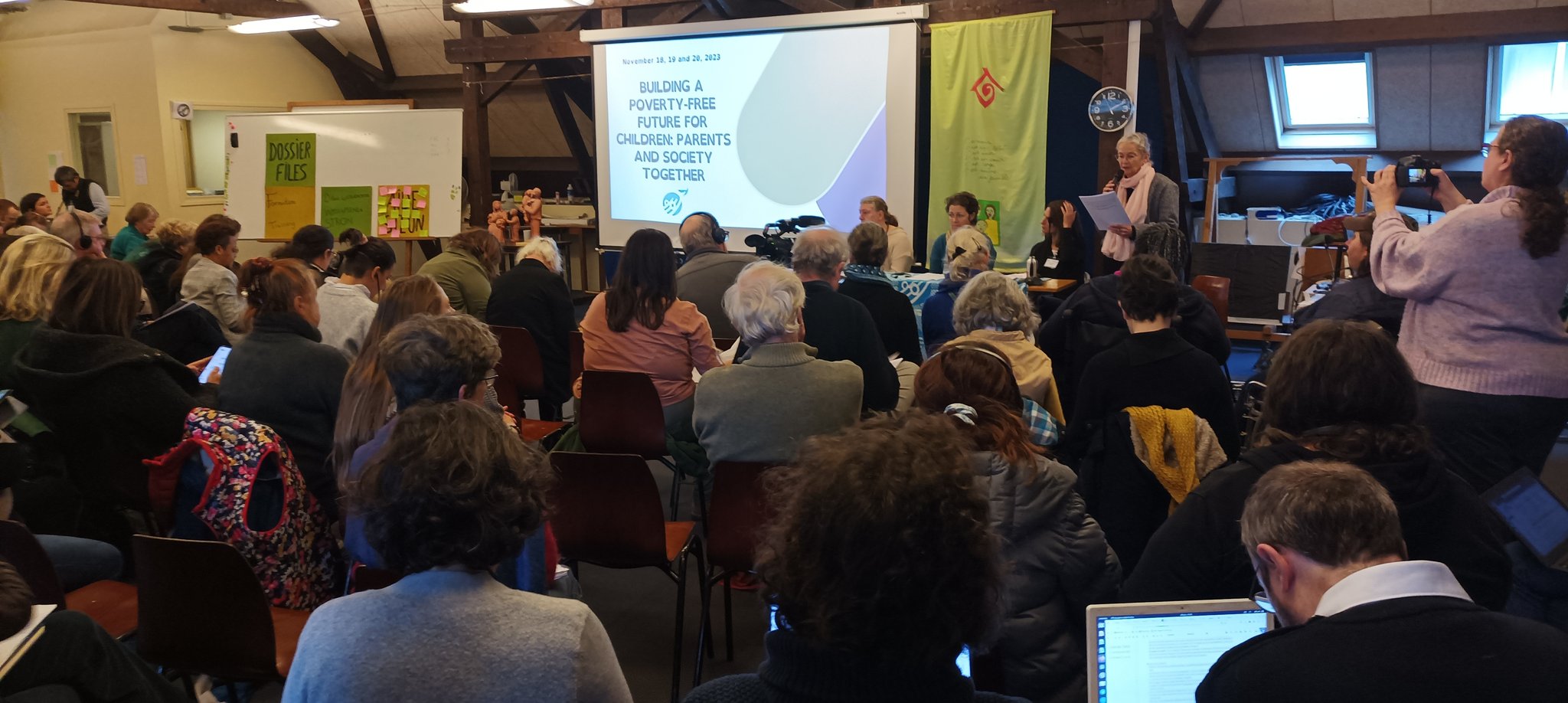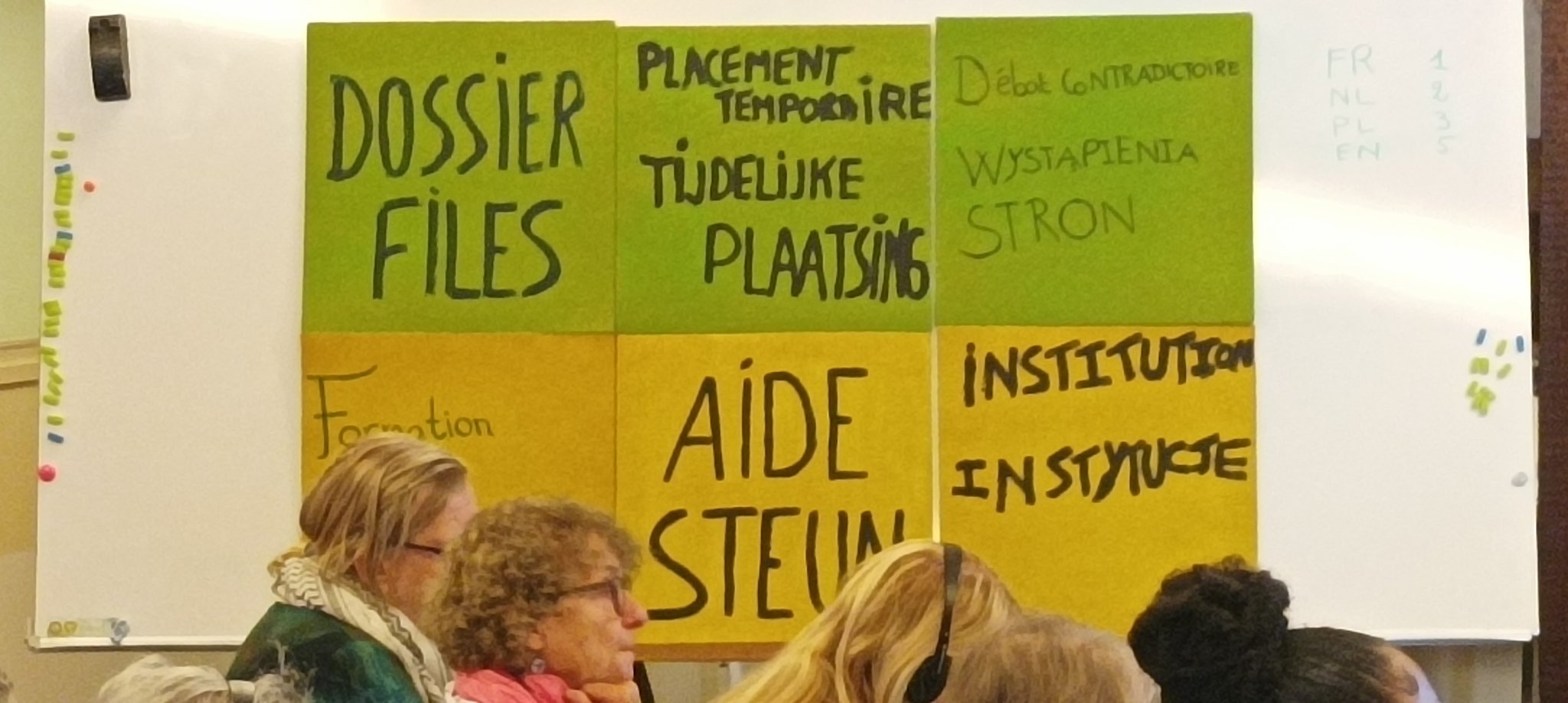Human Rights Local at ATD Fourth World’s Conference on a Poverty-Free Future for Children

– Art by Helene Perdereau
On 20 November 2023, Lyle Barker attended a conference at ATD’s international centre. The article about this conference below was first published by the University of Essex as a Human Rights Centre blog post, available here.
By Lyle Barker and Dr Koldo Casla
In July 2023, the Human Rights Local project partnered with ATD Fourth World UK to release a pivotal report, ‘Poverty, Child Protection, and the Right to Protection and Assistance to the Family in England.’ Rooted in extensive research, the report highlights the urgent need for comprehensive reforms in England’s child protection system to eliminate toxic cultures affecting families in poverty, presenting actionable recommendations to authorities at both national and local level.
Following the release of this impactful report, Lyle Barker, representing Human Rights Local, was invited to the ATD Fourth World Conference, which took place on 20th November at ATD’s international headquarters in Pierrelaye, near Paris. At this gathering, 57 diverse participants, including professionals, activists, and concerned individuals from France, the UK, Belgium, Poland and Bulgaria, came together to delve into crucial issues surrounding child protection systems in Europe and their interaction with families in poverty—addressing key points raised in the report.

The conference boasted diverse panels, with one dedicated to individuals sharing poignant first-hand experiences of poverty and navigating child protection systems, shedding light on a pervasive sense of invisibility and neglect. Another panel, grounded in research by ATD Fourth World and Oxford University, underscored the pressing need to address hidden dimensions of poverty, including social maltreatment and institutional neglect. The final panel delved into the intricate connection between international human rights law and challenges within child protection systems, acknowledging the inherent conflict between common risk-averse policies and the fundamental rights of both children and parents.
Engaging workshops played a pivotal role in the event, fostering discussions on challenges faced by both social workers and families in poverty. Participants brainstormed and proposed practical solutions in diverse workshops, addressing issues ranging from training social workers to better understand poverty to the challenges parents encounter in gaining access to child protection files.

In one workshop, participants stressed the vital need to train social workers in understanding poverty, emphasising the importance of combining emotional skills and academic knowledge. The group stressed that this training should go hand-in-hand with a political response to make bigger, systemic changes. It was also argued that true change must start at the grassroots level through the reform of policies and practices within local authorities. By integrating academic insights with practical techniques, the aim should be to equip social workers with the necessary tools to prevent discrimination and prejudice against families in poverty.
In another workshop, the focus was on challenges parents face in accessing child protection files. The group advocated for automatic provision of court reports to parents, improving communication with the legal system. They highlighted the value of maintaining a detailed family history for bureaucratic simplicity and a comprehensive record for children. Participants called for robust support systems, including uncensored letterbox contact, to foster open communication. The group strongly opposed contested closed adoptions, advocating for them as a last resort and arguing for a focus on preventative measures instead.
The impact of the conference extended beyond dialogue, as participants found hope for change and contemplated the potential for reform in child protection law, policy, and practice through engagement in international processes. Human Rights Local and ATD Fourth World UK’s submission to the UN Committee on Economic, Social and Cultural Rights provided a platform for individuals with lived experience of poverty and the child protection system to have their voices heard by the United Nations. The UK Government will now need to answer specific questions about these issues raised by the UN Committee.
The ATD Conference was a beacon of hope for a poverty-free future for children, uniting diverse participants in a shared commitment to meaningful solutions. Above all, the conference stressed the importance of collaborative efforts between parents and society. It symbolised a transformative shift towards inclusivity and collective responsibility in addressing the challenges that arise in child protection. This calls for local and national authorities to listen to those with lived experience and reform their systems, ensuring that they respect, protect and fulfil the rights of parents and children. In this brief yet impactful gathering, seeds of hope were planted, fostering the potential for lasting solutions and marking a pivotal chapter in the ongoing quest for a poverty-free future for every child.
Watch Dr Koldo Casla in conversation with Professor Jules Pretty, discussing Human Rights Local and other initiatives to make human rights locally relevant.

